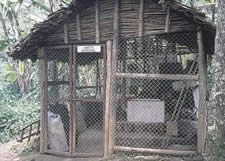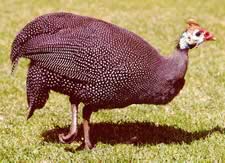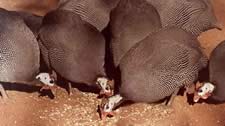| The MGCF was founded by Ruth Keesling and supporters of the late primatologist Dian Fossey, to ensure the survival of this magnificent species.
Working closely with the Rwandan and Ugandan governments, MGCF has developed a multi-faceted approach to meeting the needs of both gorillas and humans through the following projects:
|
|
|
|
|
Teacher Training Guide:
Gorilla, Habitat and People Surrounding the National Parks. This training guide is being used by teachers in Uganda to educate students about Mountain Gorillas, their habitat and what the people around the parks are doing to coexist with these highly endangered primates.
MGCF holds teacher meeting and distributes Training Guides to reach out to the student population of over 50,000. Plans are underway to get the Guide translated into French for Rwanda and the Democratic Republic of the Congo.
|
|

|
|
|
Sister School Relationship Program:
This program connects area schools with schools throughout the world. International students write letters and create posters, books or gifts about their local communities and ecosystems and share them with students in Rwanda and Uganda. MGCF is also working to establish a fund through which monetary donations can be funneled to the African schools. The funds will be used to purchase school supplies from local stores and to underwrite the cost of field trips into the national parks for teachers and students to see the gorillas firsthand.
|
|

|
|
|
Construction of Protected Disposal Pits:
MGCF worked with the Uganda Wildlife Authority (UWA) to construct 16 protected disposal pits near Bwindi Impenetrable National Park. Current garbage pits are shallow and open, allowing gorillas and other wildlife dangerous access to kitchen refuse, strange foods, human waste and such foreign substances as polythene bags. The construction of these closed pits will help reduce the amount of trash and human waste near the park, thereby reducing the incidence of diseases transmitted to the gorillas and other wildlife. A final phase of this project will address garbage and human waste disposal at homesteads adjacent to the park by teaching local residents about health care and concerns.
More Info
|
|

|
|
|
Domestic Guinea Fowl Husbandry:
MGCF is working with the Department of Wildlife & Animal Resources Management (WARM) and the faculty of veterinary medicine from Makerere University on a two-year pilot program to introduce Guinea Fowl husbandry to the Ugandan districts of Kisoro and Kanungu. If successful, it will be expanded to other districts.
Through this program, people living near the national park will be supplied with Guinea fowl stock and taught how to raise and market it successfully. The projected benefits of this program are manifold: 1) the Guinea fowl, an accepted food source in parts of Africa, will provide a safe and dependable source of protein for people in the area; 2) the sale of Guinea fowl, their eggs and related products will provide a dependable income for those who raise them; 3) the availability of Guinea fowl as a food source will decrease illegal hunting in the national park; and 4) the cooperation between breeders and WARM advisors will lead to better overall relations between communities and natural resources managers as well as an increased awareness of the value of biodiversity.
|
|


|
|
|
Veterinary Project:
Trained Veterinarians are always needed to provide care for the Mountain Gorillas that are injured or sick, as well as to monitor the overall heath of gorilla individuals and their familys. With ever-increasing human encroachment, diseases and problems are more frequent. Helping to save the expanding gorilla population is of utmost importance. Veterinary medicines and equipment are needed.
More Info
|
|

|
|